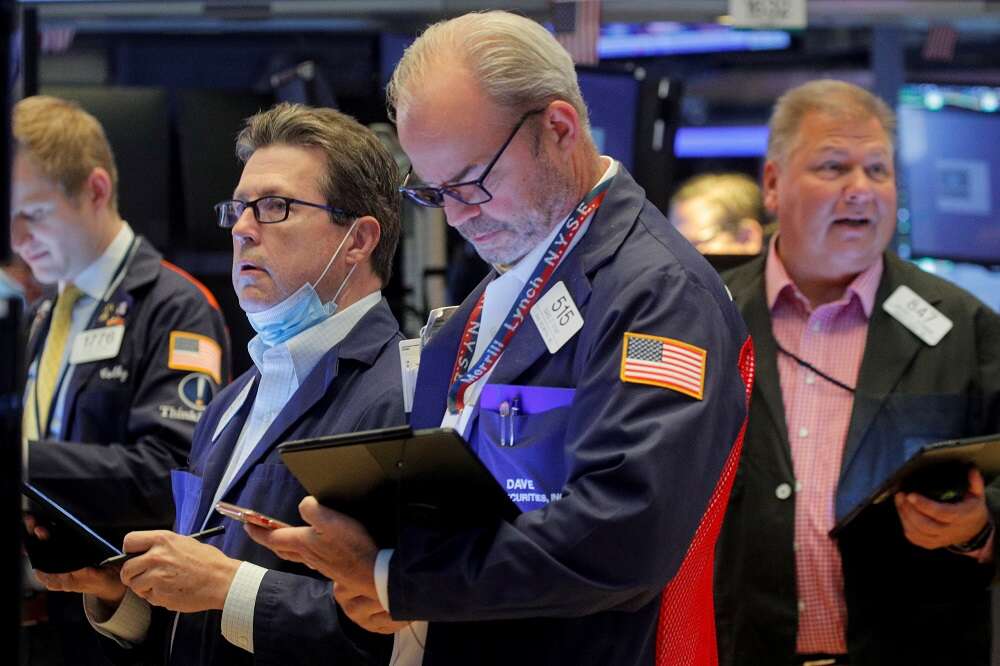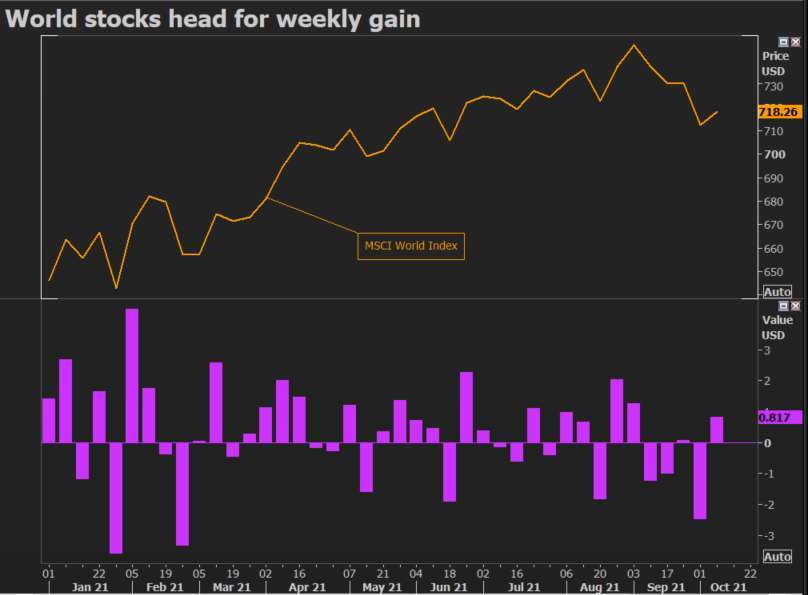
By Herbert Lash and Tommy Wilkes
NEW YORK/LONDON (Reuters) – Global equity markets edged higher and Treasury yields rose on Friday after investors mulled U.S. labor market data, with a weak headline number masking job gains that likely will keep the Federal Reserve on track to taper its massive bond purchases soon.
Yields on the benchmark 10-year U.S. Treasury note climbed past 1.6% for the first time since June, the dollar eased and stocks on Wall Street moved sideways with an upward bent.
The U.S. economy created the fewest jobs in nine months in September amid a drop in hiring at schools and worker shortages, a decline some attributed to mask requirements imposed during the surge of the Delta variant in the summer.
“The headline weakness hides an otherwise much stronger job market than we’re currently seeing,” said Russell Price, chief economist at Ameriprise Financial Services Inc in Troy, Michigan. “It’s related to mandates for vaccinations for the people who may have lost their jobs because of that.”
MSCI’s all-country world index rose 0.14% while the broad STOXX Europe 600 index fell 0.24%.
European bourses were broadly unchanged and remained lower. The German DAX dropped by 0.24%, the CAC40 in Paris fell 0.53% but Britain’s FTSE 100 rose 0.26%.
On Wall Street, the Dow Jones Industrial Average rose 0.10%, the S&P 500 added 0.04% and the Nasdaq Composite slid 0.15%.
The September jobs report, which showed the unemployment rate falling to 4.8%, is the last one before Fed policymakers meet Nov. 2-3.
The Fed has made it clear that it does not need a blockbuster jobs report to taper in November, said Kathy Lien, a managing director at BK Asset Management in New York.
“While you’re seeing a little bit of a pullback in the dollar, I think the Fed remains on track,” she said.
The dollar index, which tracks the greenback versus a basket of six currencies, fell 0.158% to 94.023.
The euro was up 0.22% at $1.1575, while the Japanese yen traded up 0.36% at $111.9900.
A rally on Thursday had lifted global stock indexes into positive territory for the week, despite widespread selling initially as investors fretted about soaring energy prices and the prospects of faster-than-expected interest rate rises to combat inflation.

Graphic: World stocks https://fingfx.thomsonreuters.com/gfx/mkt/znpnezdojvl/world%20stocks.PNG
The U.S. Senate’s approval of legislation to raise the federal government’s debt limit and avoid the risk of a historic default supported risk sentiment, though it only put off a decision on a longer-term remedy until early December.
In Asia, the main share benchmark was supported by advances in Chinese blue chips, which rose 1.31% as trading resumed after the week-long National Day holiday. The improved sentiment partly stemmed from a private-sector survey that showed China’s services sector activity returned to growth in September.
Over the past three months, Chinese shares have been battered by regulatory clamp-downs, turmoil in the property sector related to China Evergrande and its vast debt, and more recently power shortages. But some investors are starting to see a buying opportunity.
However, bonds and shares issued by Chinese property firms slumped on Friday with no sign in sight of a resolution to cash-strapped Evergrande’s debt problems, which are affecting sentiment in the broader sector.
Oil prices rose on Friday to trade up 4% on the week, buoyed by a global energy crunch that has pushed natural gas prices to record highs and prompted China to demand increased coal production.
Brent crude rose $1.19 to $83.14 a barrel. U.S. crude was up $1.42 at $79.72 a barrel.
(Reporting by Herbert Lash; additional reporting by Sujata Rao; Editing by Chizu Nomiyama, Kevin Liffey and Dan Grebler)


